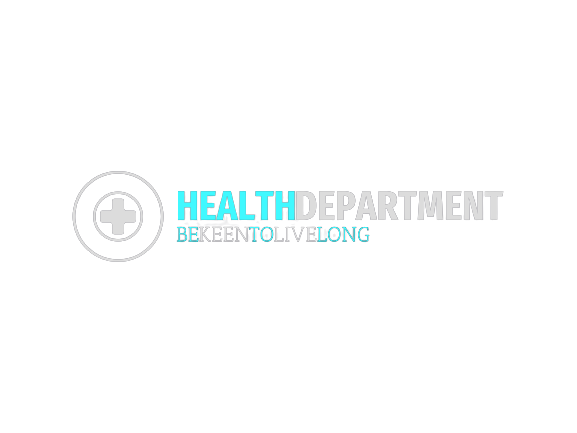Heart Attack (Myocardial Infarction)
A heart attack (medically known as a myocardial infarction) is a fatal medical emergency in which the heart muscle begins to die because it does not have enough blood flow. It is usually caused by a blockage in an artery that supplies blood to the heart. If doctors do not restore blood flow quickly, a heart attack can cause permanent heart damage and death. What is a heart attack?
Myocardial infarction (commonly called a heart attack) is a very dangerous condition that occurs due to insufficient blood flow to the heart muscle. Poor blood flow can be caused by a variety of factors, but is usually associated with a blockage in one or more of the heart's arteries. Without blood flow, the damaged myocardium begins to die. If blood flow is not restored quickly, a heart attack can cause permanent heart damage and death.
A heart attack is a life-threatening emergency. If you suspect that you or someone with you is having a heart attack, call 911 (or your local emergency number). Time is of the essence in treating a heart attack, and a delay of even a few minutes can lead to permanent heart damage or death.
What does a heart attack feel like?
When a heart attack occurs, blood flow to a part of the heart stops or becomes much less than normal, causing damage or death to that part of the heart muscle. When part of the heart fails due to insufficient blood flow, the whole heart's pumping sequence can be disrupted. This can reduce or even stop blood flow to other parts of the body.
What are the symptoms of a heart attack?
Heart attacks have many symptoms, some of which are more common than others.) Heart attack symptoms may show different symptoms.
Some heart attack symptoms that people often describe include:
Chest pain (angina). It can be mild and can feel uncomfortable and heavy, or it can be intense and crushing. It may start in the chest and spread (or spread) to other areas such as the left arm (or both arms), shoulder, neck, jaw, and .What is a heart attack?
Myocardial infarction (commonly called a heart attack) is a very dangerous condition that occurs due to insufficient blood flow to the heart muscle. Poor blood flow can be caused by a variety of factors, but is usually associated with a blockage in one or more of the heart's arteries. Without blood flow, the damaged myocardium begins to die. If blood flow is not restored quickly, a heart attack can cause permanent heart damage and death.
A heart attack is a life-threatening emergency. If you suspect that you or someone with you is having a heart attack, call 911 (or your local emergency number). Time is of the essence in treating a heart attack, and a delay of even a few minutes can lead to permanent heart damage or death.
What does a heart attack feel like?
When a heart attack occurs, blood flow to a part of the heart stops or becomes much less than normal, causing damage or death to that part of the heart muscle. When part of the heart fails due to insufficient blood flow, the whole heart's pumping sequence can be disrupted. This can reduce or even stop blood flow to other parts of the body.
What are the symptoms of a heart attack?
Heart attacks have many symptoms, some of which are more common than others.) Heart attack symptoms may show different symptoms.
Some heart attack symptoms that people often describe include:
Chest pain (angina). It can be mild and can feel uncomfortable and heavy, or it can be intense and crushing. It starts in the chest and spreads (or radiates) to other areas such as the left arm (or both arms), shoulder, neck, chin, back, or buttocks.
Shortness of breath or difficulty breathing.
unwell
Sleep disorder (insomnia).
Nausea and stomach upset. A heart attack is often mistaken for indigestion or heartburn.
heart beat
Anxiety or a sense of "impending doom."
Sweating.
Lightheadedness, dizziness, fainting.
Heart attack symptoms in women and is most at risk of heart attack?
Several important factors affect the risk of heart attack. Unfortunately, some of these heart attack risk factors are out of your control.
Heart attack risk factors Why more risk factors
Age and gender As you get older, the risk of heart attack increases. When the risk of heart attack begins to increase, gender plays a role.
Men and AMAB subjects: The risk of heart attack increases significantly at the age of 45.
Women and AFAB people: The risk of heart attack increases significantly after age 50 or after menopause.
Family history of heart disease If you have a parent or sibling with a history of heart disease or heart attack, especially at a young age, your risk is even higher because of similar genetics.
If:
Your father or brother has heart disease under the age of 55.
Your mother or sister has heart disease under the age of 65.
Lifestyle Lifestyle choices that are not good for your heart can increase your risk of heart attack.
These things increase the risk of a heart attack:
Lack of physical activity.
A diet rich in sodium, sugar and fat.
Smoking or using tobacco (including smokeless or chewing tobacco and electronic cigarettes).
Drinking too much alcohol
Drug use (especially young people).
Some health conditions or diseases Some health conditions put pressure on the heart.
Having these health conditions can increase your risk of heart attack.
diabetes
obesity
High blood pressure (hypertension).
high cholesterol (hyperlipidemia);
History of preeclampsia during pregnancy.
Eating disorders



.jpg)
.jpg)





.jpg)
0 Comments
if you have any doubt,please let me know